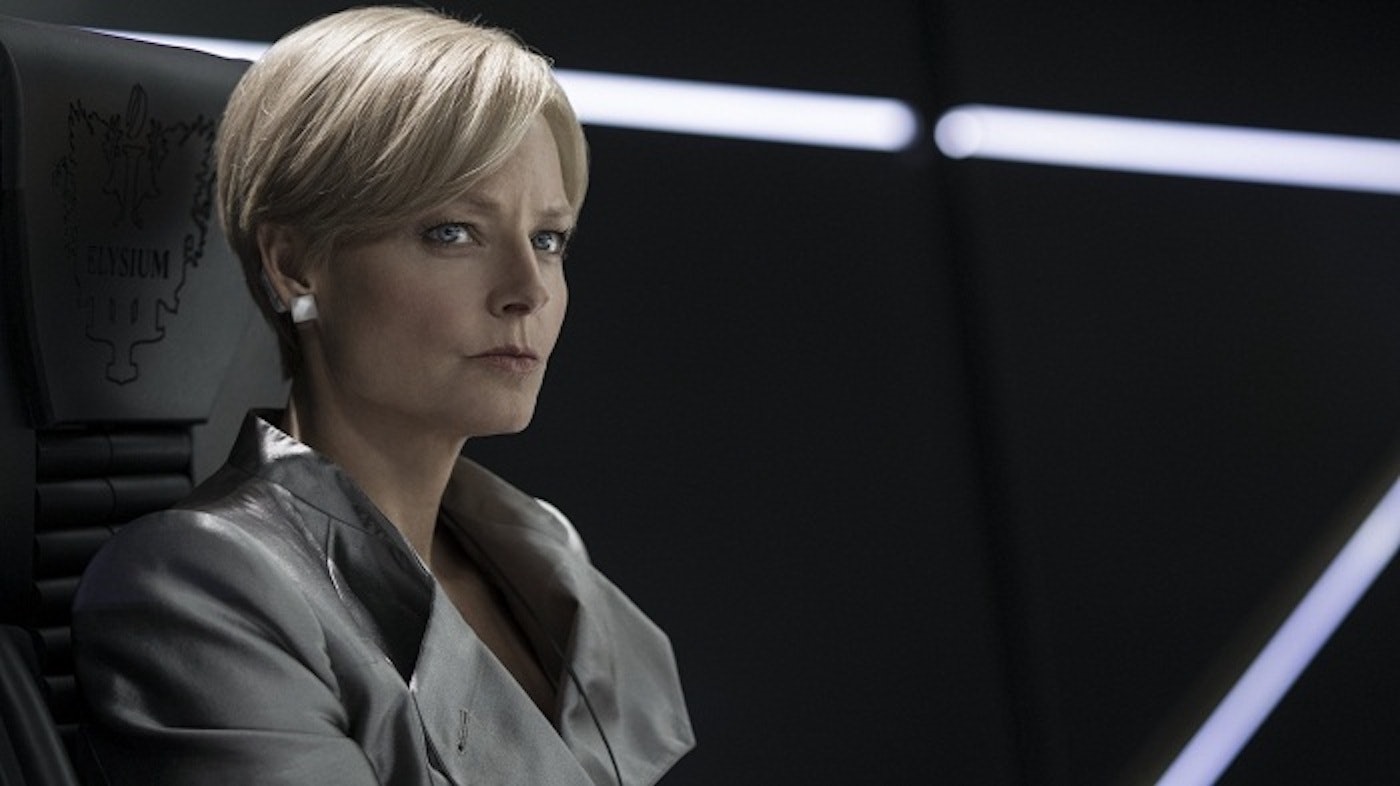
In the 2020s, if you see a sci-fi movie stacked with a ton of Hollywood A-listers, there’s at least a 50 percent chance you’re dealing with some kind of franchise — an MCU flick, maybe, or at least a powerhouse like Dune. This is another way of saying: it seems unlikely a movie like this one would be made today. Or, if it were, that it would be anything other than a prestige Amazon Prime sci-fi series, with a much less star-studded cast.
In 2013, however, Neill Blomkamp’s follow-up to District 9 had the star power to spare. The film also just hit Netflix, and it’s better than you remember.
Starring Matt Damon and Jodie Foster, Elysium didn’t just tout two Hollywood A-listers but also future sci-fi icons Diego Luna (Cassian in Star Wars: Andor, Rogue One) and Adrian Holmes (Robert April in Star Trek: Strange New Worlds.) Watching it today, it’s hard to understand why this movie isn’t more highly regarded. Although Damon would briefly become the official “serious sci-fi movie actor” in Interstellar (2014) and The Martian (2015), of those three back-to-back flicks, he’s best in Elysium — even if Interstellar is the slightly better movie.
Elysium presents a fairly simple (and, these days, somewhat plausible) future setting: Most people of Earth are living in extreme poverty, while the rich and privileged chill out in a beautiful space station called Elysium. In addition to the huge wealth gap between the privileged few and the miserable majority, Blomkamp’s script also articulates a health gap. Turns out miraculous medicines are among the resources being hoarded by the people of Elysium. This inequality sets the plot into motion, as Max (Damon) needs to cure some serious radiation poisoning. What follows is a pretty straight-forward heist plot in which Max makes a deal with a hacker named Spider (Wagner Moura) to sneak into Elysium and get cured. In a cyberpunk twist straight out of Johnny Mnemonic, there is also some secret data in Max’s head that everybody is obsessed with.
In terms of a mainstream sci-fi movie, Elysium feels slightly ahead of its time, insofar as the aesthetics predict the look and feel of contemporary shows like Westworld. Then again, if you were a cyberpunk fan, Elysium probably felt like a throwback in 2013, complete with familiar imagery from William Gibson novels and The Matrix. There’s a bit of a ‘90s hacker-movie vibe, fused with a space-action vibe that is, at times, incongruous. And, although Neill Blomkamp’s sci-fi social commentary was spot-on in District 9, the morality tale in Elysium is a bit more on the nose.
But this is the curse of Elysium: it came out in between Blomkamp’s best sci-fi film (District 9) and his absolute worst sci-fi film (CHAPPiE). This sandwiching probably explains why it's been forgotten — or at the very least, underrated — for all this time.

The core of the movie holds up surprisingly well, and the performances balance out any inconsistent world-building. While it's hard to argue we need more stories set in the world of Elysium, there is something appealing about the contrasting aesthetics Blomkamp presents. The premise of Elyisum feels like an old-fashioned sci-fi trope, but the juxtaposition of one human world as clean and perfect and the other as gritty and downtrodden really works here. The resolution of the film feels rushed (no spoilers!), but it’s also hard to imagine a satisfying version of this movie ending any other way.
Elysium is an action movie in a dystopian cyberpunk setting, that really wants to be an aspirational sci-fi allegory. It never quite excels in any of these categories, but it doesn’t fail either. It has more heart than Westworld and more style than The Martian. It’s no masterpiece but, as solid sci-fi cinema goes, Elysium deserves another look.







